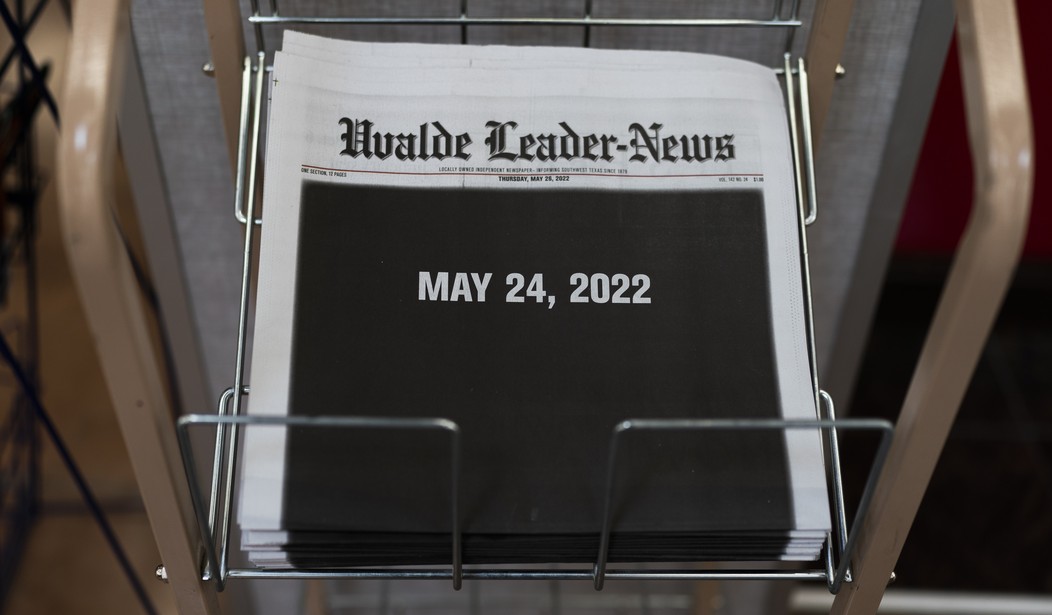The response to the Uvalde school shooting by the school district police department remains under scrutiny for obvious reasons. Cooperation with people seeking answers and the media on the part of the police has been “limited,” to put it charitably. And the number of times we’ve heard the story change doesn’t inspire confidence. But the police keep records of everything, right? Eventually, we should be able to obtain a full set of radio communications, body cam videos, emails, and other records. Then we’ll finally be able to figure out how it all went so wrong and make sure that doesn’t happen at other schools in the future.
Or perhaps not. The New York Post is reporting this weekend that an obscure codicil in Texas law could prevent the public from ever seeing those records if the police don’t feel like releasing them. The law was ostensibly put in place to protect wrongly accused suspects from having the results of police investigations into their activities released to the public. Such records are only automatically made available after someone is convicted. But when a suspect dies before they go to trial, there is no conviction so the records can be withheld. The clause is being referred to as the “dead suspect loophole.”
Police may never have to fully account for what went wrong during the Uvalde school massacre, thanks to a quirk in Texas law.
The law, meant to protect people wrongly accused, says police agencies may not release their investigative files unless a person is convicted of a crime.
But when an accused criminal dies before they’re convicted, it enables police to withhold information, an award-winning Texas journalist said.
So I suppose I can see the original intent of the law and the value it may provide. If you are wrongly accused of something, you probably don’t want any dirty laundry that the cops turn up while investigating you showing up on the front page of the local paper. It’s a privacy concern, so it might be helpful in some cases.
But the unintended consequences of the law (assuming they were unintended) haven’t worked out well for everyone. For one thing, families of suspects who died during lethal force encounters with law enforcement have been stymied in their efforts to get police records released because there was never a conviction. The Uvalde school shooter won’t be going to trial any time soon since he’s permanently unavailable for comment.
In this case, however, nobody is going to be very concerned over the deceased shooter’s privacy. If these records are all withheld it will be tough to explain any reason for that other than the cops not wanting the public to find out how badly they screwed up the response to the shooting. And the police will have the very convenient excuse of “following the letter of the law” available to them. Of course, if nobody is arguing against the release of the records, they could still do it voluntarily according to one legal analyst quoted in the linked report. It’s really up to the police how they want to handle it.
There is more on the line here than just the reputations of the law enforcement officials involved. As I already mentioned, getting to the bottom of this debacle could prove critical as school districts around the country work to implement the best practices possible to thwart such mass shootings in the future. This shouldn’t be looked at as some sort of game of media gotcha to punish the police. It should be seen as an opportunity for everyone to do better.
And really, what do the police chief and the others on the scene have to lose by being fully transparent? Yes, bad decisions were made that could have potentially cost many lives that might have otherwise been saved. But bad decisions in the midst of a crisis are not criminal acts. Nobody is going to jail for wrongly interpreting the situation. It might cost some people their careers, but as far as everyone on the scene being painted as heroes goes, I think that ship has already sailed.








Join the conversation as a VIP Member